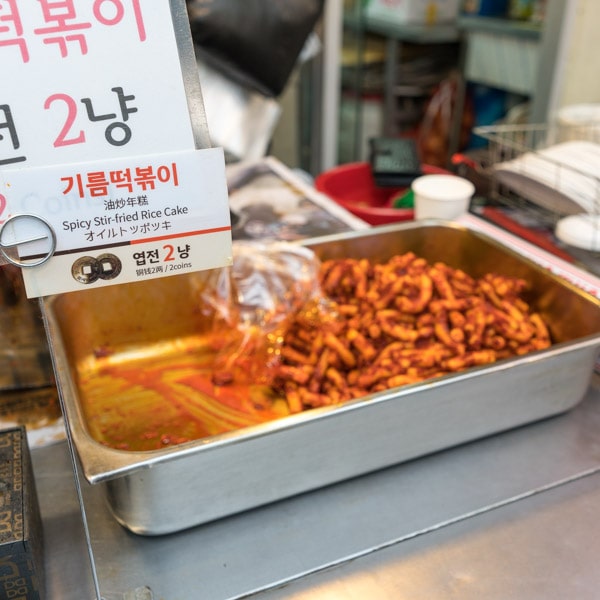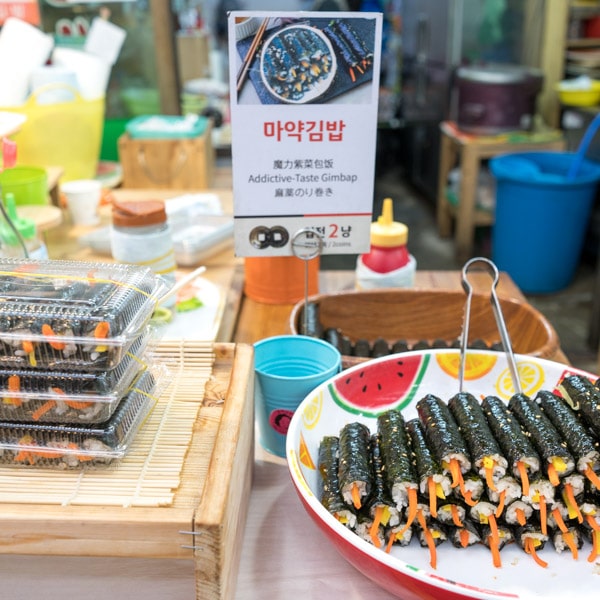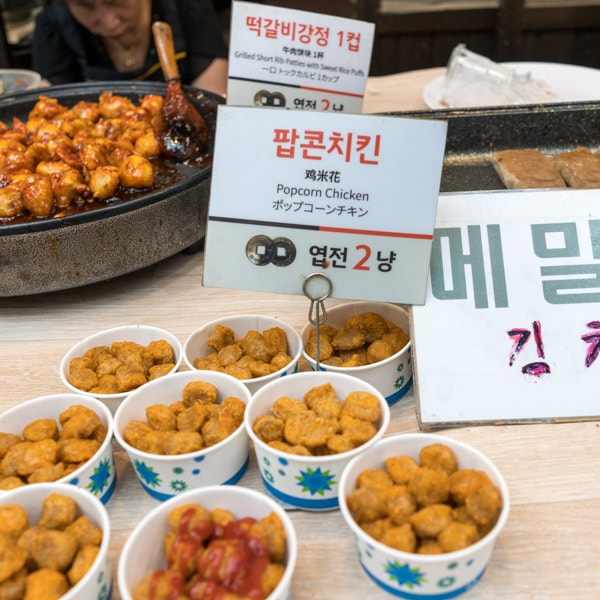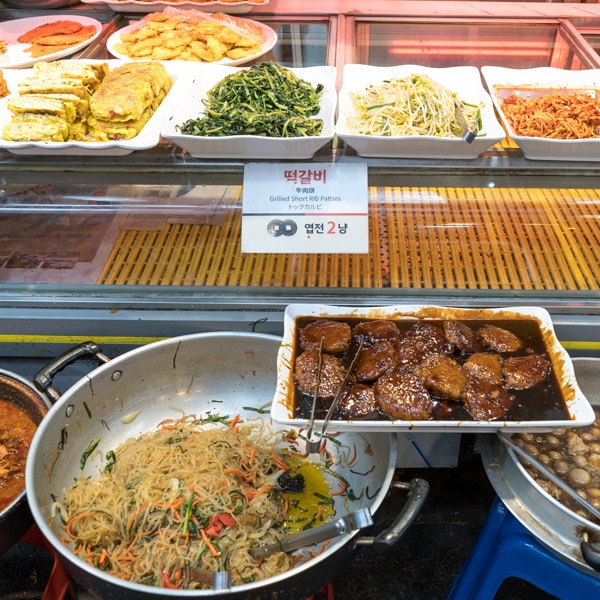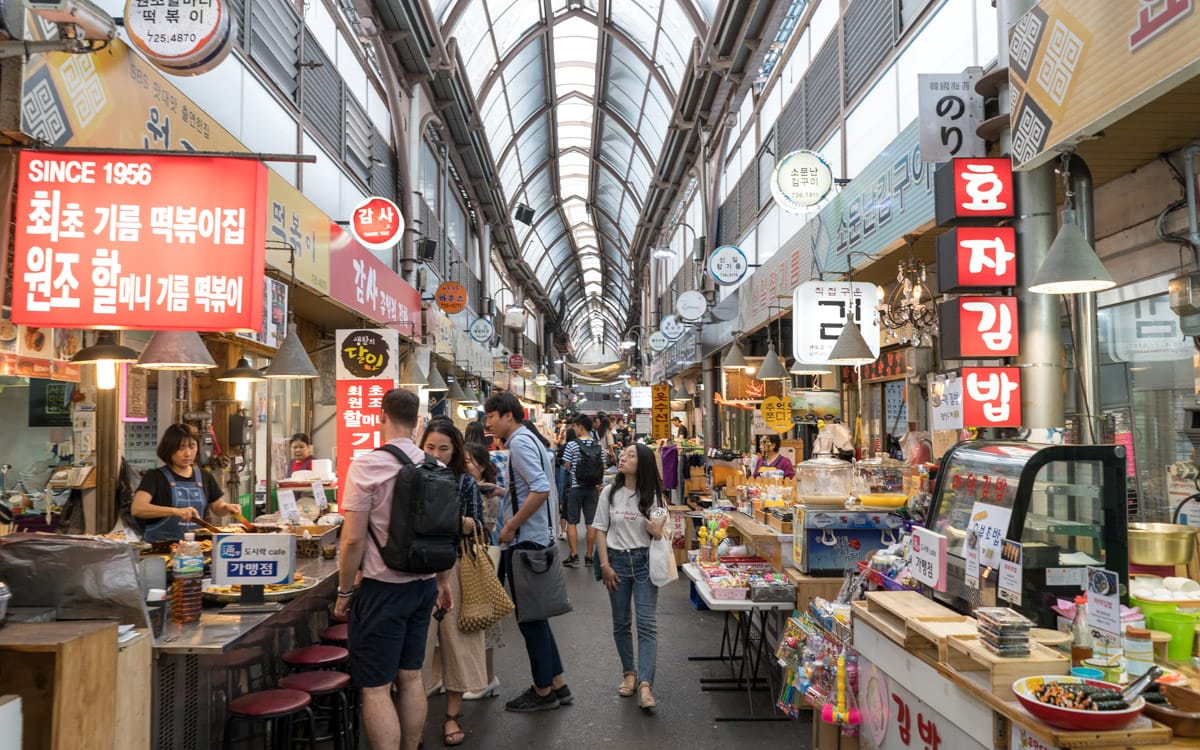
Tongin Market is a traditional market located west of Gyeongbokgung Palace and Seochon Village. The compact market features about 80 different shops along a 200 meter covered alleyway. In addition to restaurants and banchan shops, the market also features Korean street food stalls along with vendors selling a range of fresh produce such as vegetables, fruits, fish, and meat.
Established in June 1941, Tongin Market was initially created to serve as a local market catering to Japanese residents during the Japanese colonial rule (1910-1945). Following the Korean War (1950-1953), Seoul’s population surged, leading to a rise in consumption and demand for goods and food. As a result, the market expanded as Korean street vendors and shops began selling their own products and wares in what was once a Japanese market.
With around 80 stores to choose from, including restaurants, grocery stores, and shops selling clothes and shoes, Tongin Market offers an array of options for visitors. However, the main attraction for most people is the delicious Korean food found at the market. Popular food items to try at Tongin Market include fried tteokbokki, dakkochi (chicken skewers), bugak (fried vegetables), and dalgona (sweet candy).
Yeopjeon Dosirak (Brass Coin Lunchbox)
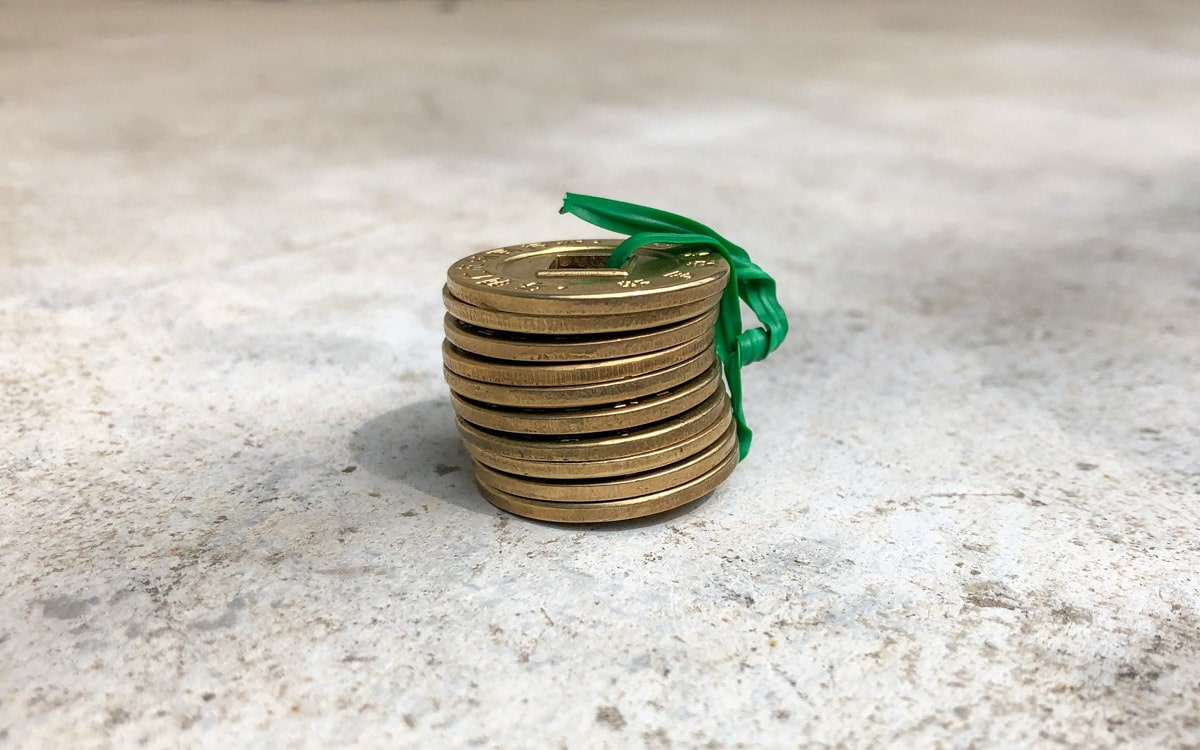
Tongin Market provides visitors with a unique experience where they can use yeopjeong (brass coins) to buy various foods in the market and assemble their own lunch box. This is known as yeopjeon dosirak (brass coin lunchbox).
Brass coins are available for purchase at the market entrance or on the second floor of Dosirak Cafe. The cafe is located in the Customer Service Center, located in the center of the market. For 5,000 won, you get 10 brass coins.
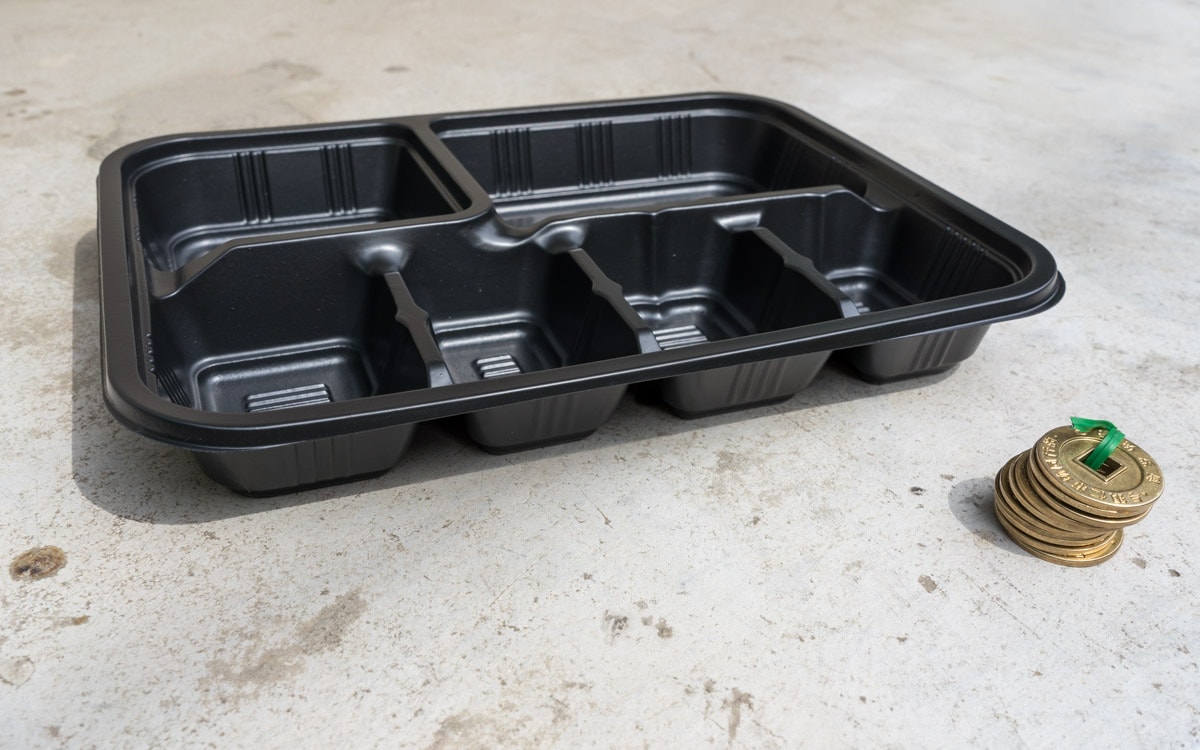
After your purchase, you will be given 10 brass coins and an empty plastic lunchbox with six individual sections. You can now start exploring the numerous food stalls in the market where you will be able to create your own unique lunchbox.
The lunchbox is a popular choice among visitors because it provides an affordable and tasty way to sample a variety of Korean food options.
While tteokbokki might be the most popular food found at Tongin Market, you will find an extensive variety of popular dishes. This includes grilled short rib patties, gimpab, popron chicken, naengmyeon (cold buckwheat noodles), and more.
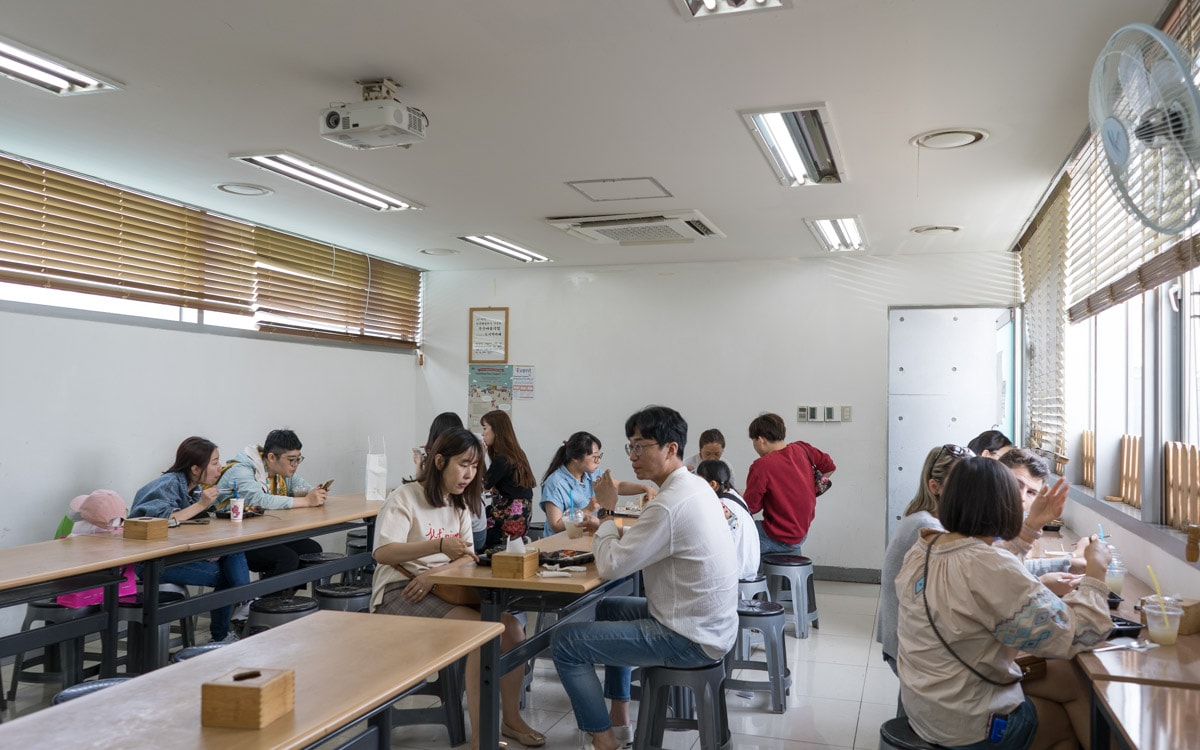
Once you’ve assembled your lunchbox, you can return to Dosirak Cafe where tables are available on two floors for you to sit and enjoy your meal. The cafe offers utensils, complimentary water, and provides the option to add rice or soup to your lunchbox for an additional 1,000 won or 2 coins.
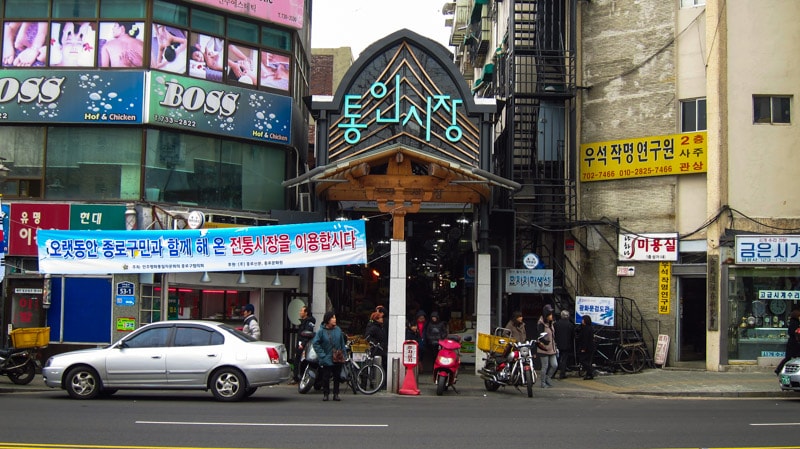
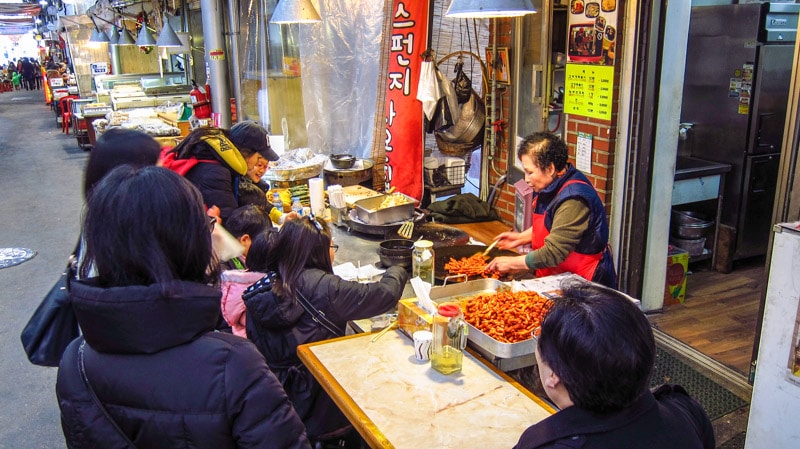
What to eat at Tongin Market
Fried Tteokbokki (Spicy Rice Cakes)
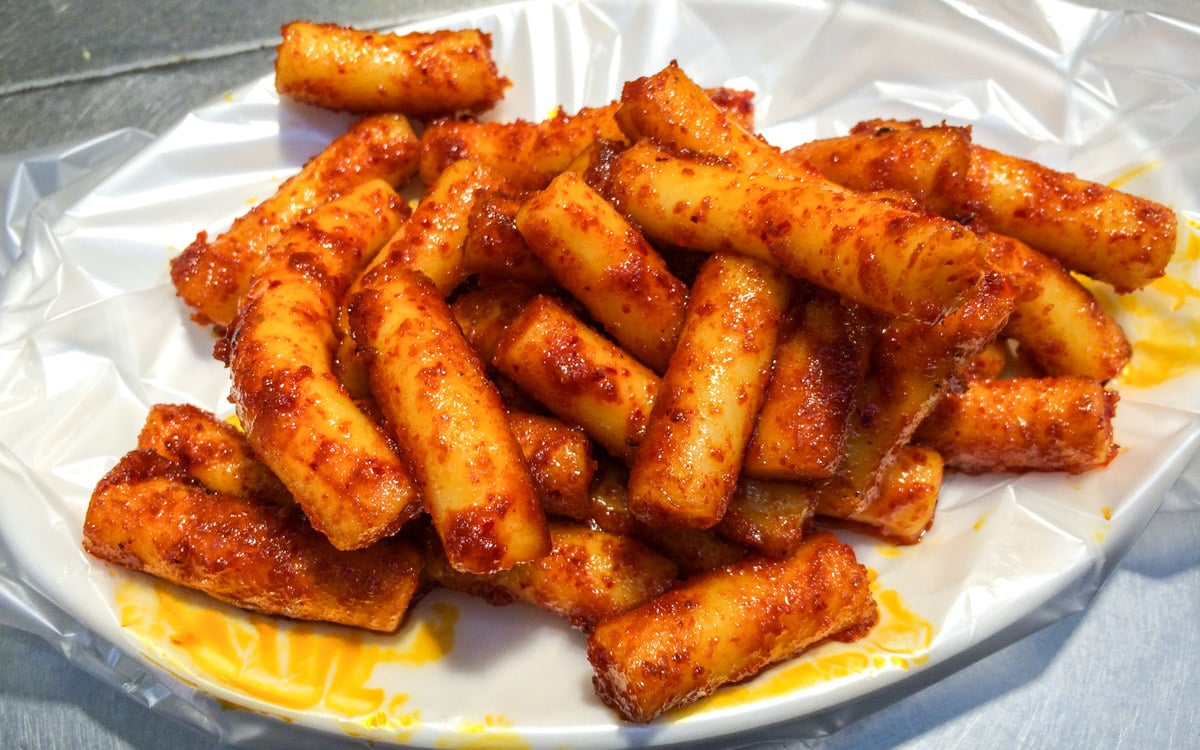
The most popular food to try at Tongin Market is fried tteokbokki. Tteokbokki is rice cake that is usually boiled first, but at Tongin Market the snack is fried first in spicy oil then added to a spicy sauce. This makes the snack crispy on the outside while soft on the inside. While the classic variety uses spicy oil, other varieties, including a soy sauce oil version, is also popular.
Dakkkochi (Chicken Skewers)
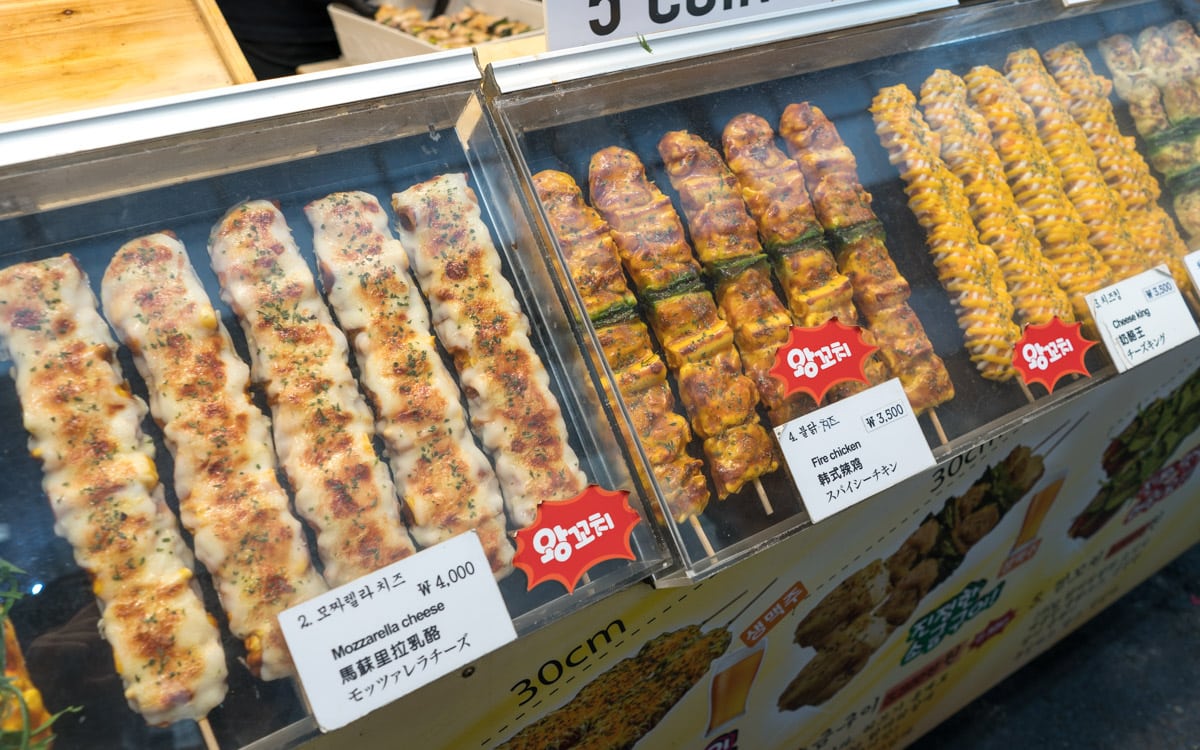
Dakkochi is a popular street food traditionally made with marinated chicken thighs and green onions on a skewer and grilled over charcoal until smoky. The marinade for dakkochi typically includes soy sauce, sugar, and garlic, which add a delicious sweet and savory taste. Dakkochi can come in various forms, with unique versions incorporating ingredients such as spicy chicken, sesame leaves, and mozzarella cheese. With its succulent and rich flavors, dakkochi makes for a perfect on-the-go snack or quick meal.
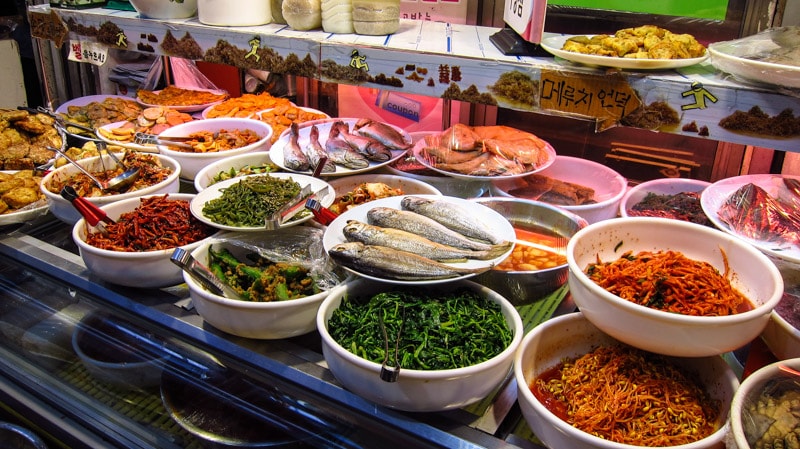
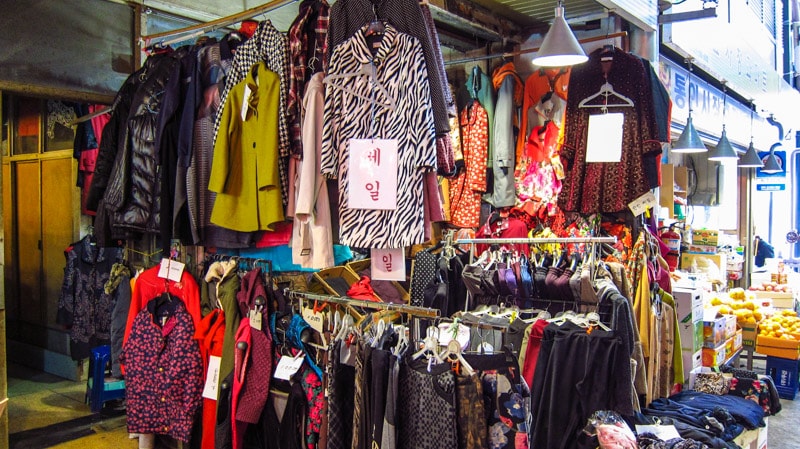
Tongin Market Information
Hours
Admission
Free
Address
18 Jahamun-ro 15-gil, Jongno District, Seoul, South Korea
GPS Coordinates: 37.58099, 126.97098
How to Get Here
Option 1
Take Subway Line 3 to Gyeongbokgung Station (Exit 5).
After exiting, continue for 500 meters to reach the market on the left..
Tongin Market Video
Map
Official Website
https://english.visitkorea.or.kr/svc/whereToGo/locIntrdn/rgnContentsView.do?vcontsId=79811
Additional Resources
Klook
Klook offers discounted tickets and reservations for attractions and services in Seoul—from theme parks and museums to tours and transportation.
Viator by TripAdvisor
Book tours, activities, and unique experiences in Seoul—from sightseeing to cultural events and outdoor adventures—offered by local providers.
Rakuten
Save with cashback on hotels and travel services. Sign up and you could earn $30 cashback on your first purchase over $30.
Book Recommendations
Prefer a physical guide? Fodor’s Seoul offers detailed recommendations, maps, and travel tips for the city.
Nearby Sights
National Palace Museum of Korea
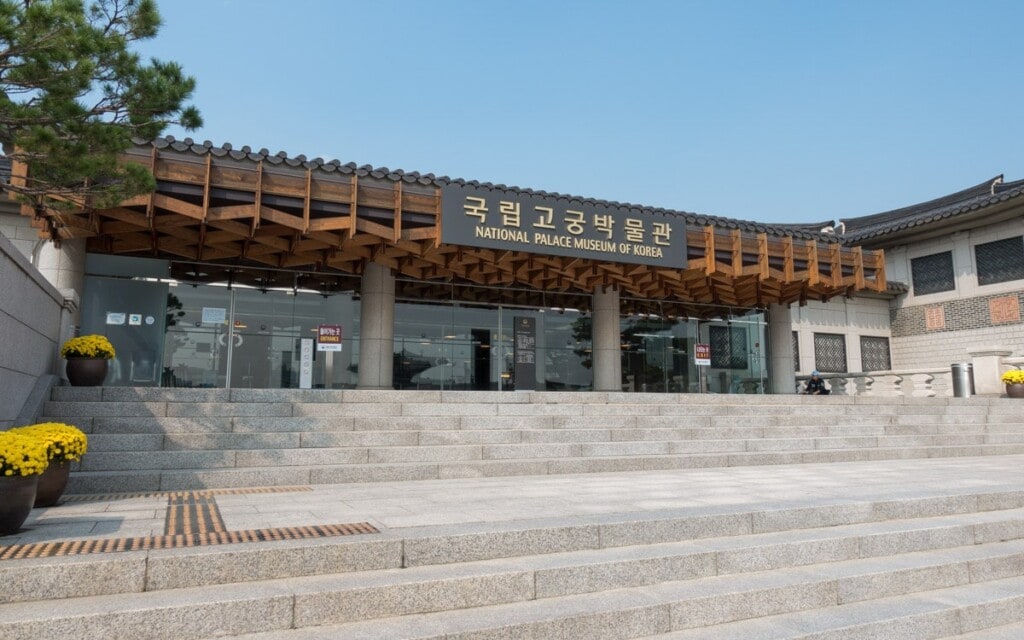
The National Palace Museum of Korea, located on the grounds of Gyeongbokgung Palace, houses a collection of over 900 relics and 40,000 artifacts from the royal court of Joseon Dynasty palaces including Gyeongbokgung, Changdeokgung, Changgyeonggung, and Jongmyo. Initially, the museum…
Gyeongbokgung Palace

Gyeongbokgung Palace, located north of Gwanghwamun Square, is one of the most iconic sights in all of Korea thanks to its long and storied history. Construction on Gyeongbokgung Palace was completed in 1395 at the beginning of the Joseon Dynasty…
Sajik Park
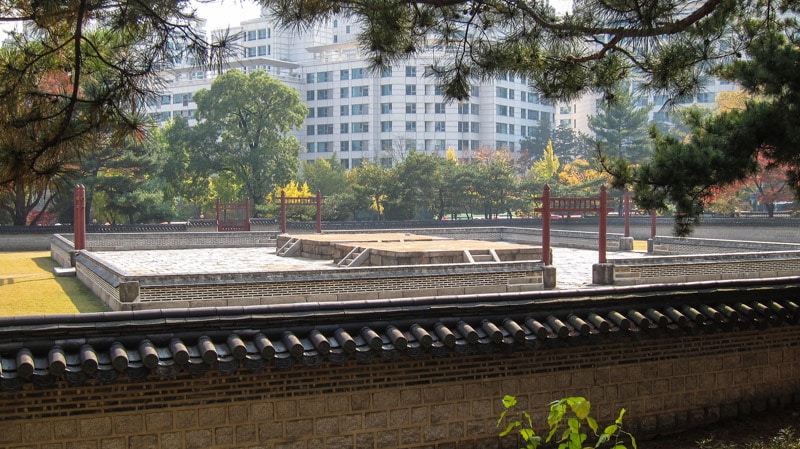
Sajik Park is a park located near the Central Government Complex on the hills of Mt. Inwang. Rites to the deities of earth and grains are performed here. It was here where sacrifices and ceremonies were performed in honor of…
Cheong Wa Dae (Blue House)
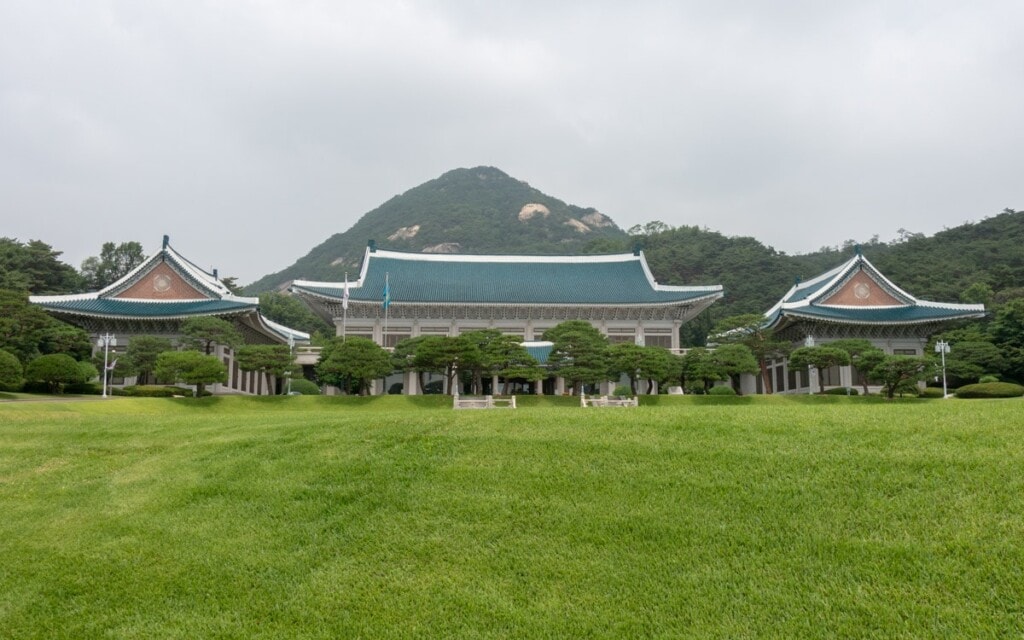
Cheong Wa Dae, or Blue House, is the official residence of the President of the Republic of Korea. It was built with traditional Korean architectural styles. The name comes from the translation of Cheong Wa Dae which means "pavilion of…
National Folk Museum of Korea
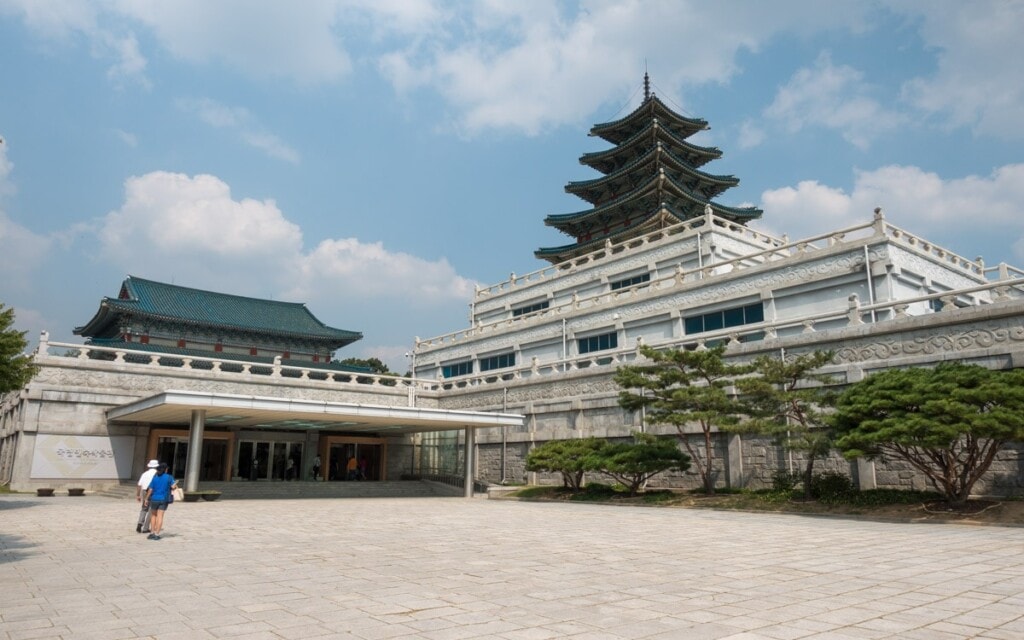
The National Folk Museum of Korea is a museum on the grounds of Gyeongbokgung Palace, not to be confused with the nearby National Palace Museum of Korea which is also found on the palace grounds. The museum dates back to…
Gwanghwamun Gate
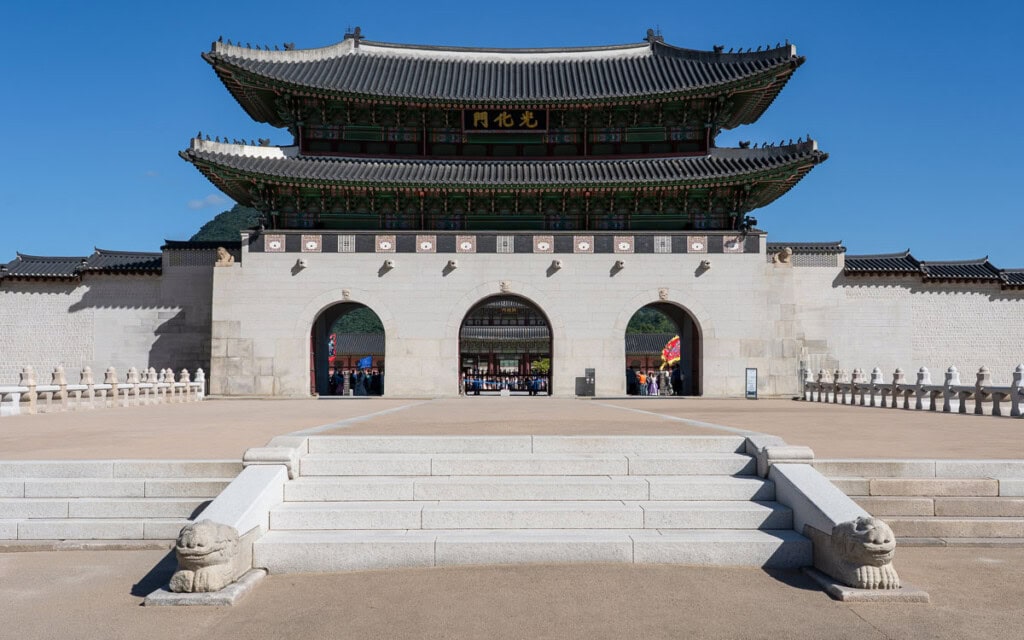
Gwanghwamun Gate is the imposing main gate of Gyeongbokgung Palace. The gate has been rebuilt many times over the years but remains an icon of Seoul. Construction began in 1395 at the beginning of the Joseon dynasty. The gate quickly…
Last Updated on Mar 14, 2025
